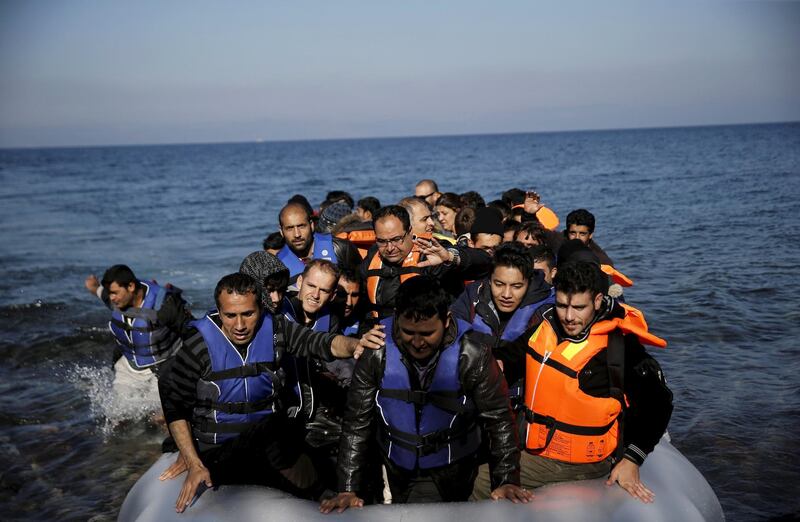Greek and foreign charities sounded the alarm on Thursday in the face of continuously deteriorating conditions in migrant camps across Greece, amid warnings from local authorities calling for the closure of the reception camp on the island of Lesbos due to public health concerns.
Nineteen NGOs issued a joint statement singling out conditions in the camps in the eastern islands of Lesbos and Samos, which are respectively three and six times over capacity.
"As EU leaders consider so-called “control centres” across Europe, conditions on the Greek islands must give them pause,” Imogen Sudbery, International Rescue Committee’s advocacy lead in Brussels, told The National. “Other member states must urgently step up and agree to support these countries. It is short-sighted, ineffective, and counterproductive to believe that these countries can carry all of the responsibility on their own.”
IRC is one of the organisations to have signed the joint statement, which states that it is "nothing short of shameful that people are expected to endure such horrific conditions on European soil."
The criticism comes days after the regional governor threatened to shut down Moria camp in Lesbos unless action is taken within a month to improve conditions, which include overcrowding and raw sewage running on the ground where people sleep.
Over 9,000 asylum-seekers inhabit a space designed to host 3,000, with access to one toilet per 72 inhabitants and with a queuing-time of approximately three hours for a food parcel.
______________________
Read more:
Greek police fire teargas at Macedonia protesters
Cyprus appeals for EU help as migrant influx increases
______________________
A spokesperson for the Ministry for Migration Policy told The National the Greek central government is doing all in its power to improve the situation in refugee camps, but that the call to action should be addressed to all member countries.
“The situation has been getting worse and worse because the flow of migrants has never stopped, despite the EU-Turkey [deal]”, the official said.
While the controversial deal aimed at curbing arrivals from Turkey initially succeeded in its intent to curb refugee numbers in 2016, “arrivals never stopped.” Greece has since only been able to relocate vulnerable asylum-seekers to the mainland, given that all other migrants must be kept on the islands to await deportation to Turkey.
“If 100 people are arriving per day [in average] on the island, the number of people in the camps can never go down,” the official said.
The ministry vowed to do all that is in its power to respond to the concerns expressed by the NGOs and the regional authority – such as moving some of the remaining vulnerable refugees to the mainland to alleviate the burden on the islands. But the responsibility should be “shared among all member states equally,” the official added.
Doctors Without Borders (MSF) was not among the signatories of Thursday’s statement but has long been vocal about the conditions in the camp, recently denouncing the rape of a 5-year-old and suicide attempts among children.
Apostolos Veizis, Director of the Medical Operational Support Unit for MSF Greece, said that the closure of the Moria camp was not likely due to the absence of alternatives but that the situation was reaching a breaking point for all parties involved.
"We need to ask ourselves, where has the humanity gone in Europe?", Mr Veiz told The National, adding that he believes the disastrous conditions in refugee camps to be part of an attempt to dissuade more migrants from crossing into Europe.
“These are people who have fled war, they won’t be easily put off,” he said. “What is being done today in Europe amounts to the torture of human beings.”






